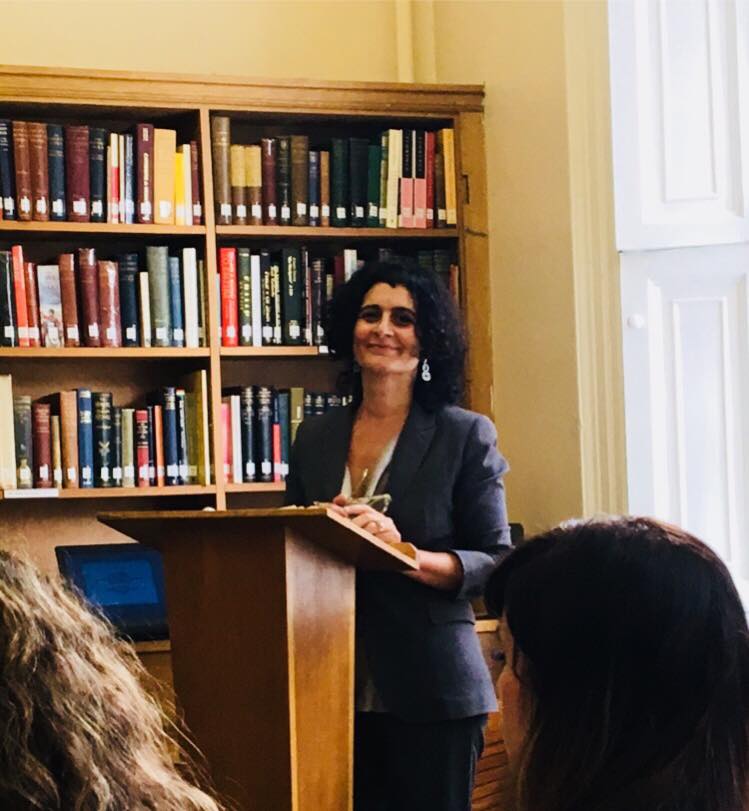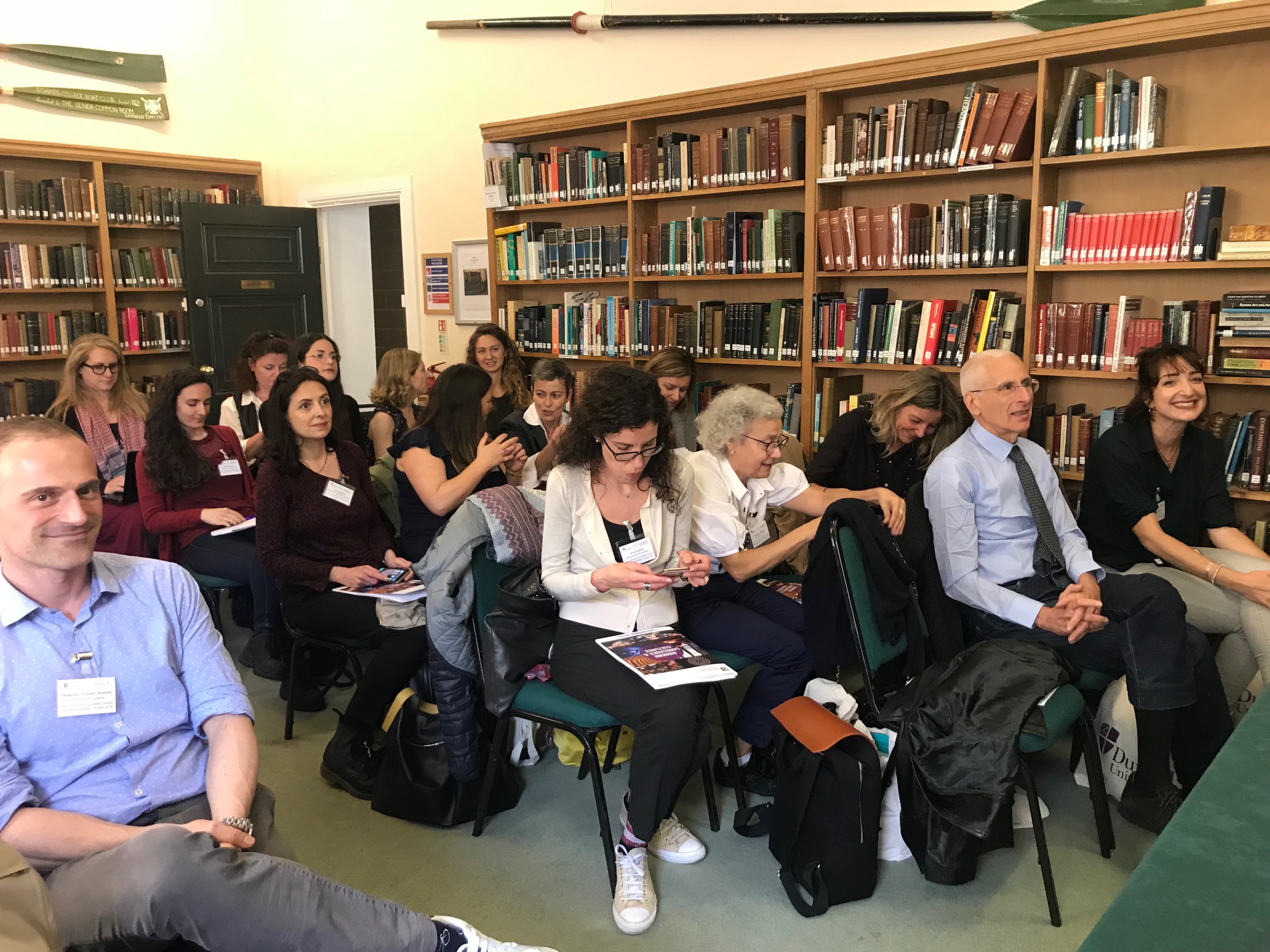
The two-day international conference ‘Elena Ferrante in a Global Context’, co-organised by Tiziana de Rogatis, Stiliana Milkova and Katrin Wehling-Giorgi, took place at St. Chad’s College, Durham University, on 7-8 June 2019. Generously sponsored by the SIS, the MHRA, the Faculty of Arts and Humanities, St Mary’s College and the IAS at Durham University, the conference hosted a total of eight panels and 23 speakers, as well as two keynote speakers, Professor Laura Benedetti (Georgetown University) and Professor Tiziana de Rogatis (Università per Stranieri di Siena).
The global success of Elena Ferrante’s so-called Neapolitan Novels has firmly established the author as one of the most powerful voices of contemporary World Literature. Ferrante’s Neapolitan quartet interweaves an imaginary that is profoundly rooted in Italian – or more specifically Neapolitan – culture with some of the emergent topics and issues of globalisation as her female protagonists negotiate the tensions emerging between local identity and national and transnational belonging. The conference sought to advance reflections on how Ferrante interrogates a series of margins – for instance relating to gender roles, topography or language – that are of relevance on a global scale. The conference furthermore provided a platform for dialogue between a range of scholarly, interdisciplinary and comparative approaches that address issues including gendered urban spaces, female friendship, the negotiation of language and place, liminal cityscapes as well as the author in translation and the TV series based on the Neapolitan Novels.

The event included a series of panels focusing on various thematic areas associated with the conference topic, ranging from ‘The Local, the Global, and Beyond’ to ‘Bodies, Identities and Languages on the Threshold of the Local and the Global’, ‘Teaching, Translating and Approaching Language in Elena Ferrante’s Works’, ‘Feminine Creativity, Women in the Public Sphere’, ‘The TV Series My Brilliant Friend’ and ‘Comparative Approaches’. Speakers contributing to the rich array of panels included PhD students, early career researchers and more established academic researchers from Italy, the US, the UK, Croatia and the Czech Republic, and a very productive dialogue was established that crossed disciplinary, generational and national boundaries. Some of the most recent lines of enquiry included an assessment of Ferrante’s works in the context of World Literature and the ‘global’, comparative approaches to Ferrante and authors including Murakami Haruki, Karl Ove Knausgaard, Alice Sebold and Slavenka Drakulić, a reconsideration of Ferrante’s works through the lens of classical mythology and urban sociology, critical approaches to the filmic adaptation of My Brilliant Friend, the relevance of New Materialism, Eco-criticism and posthuman identity in the Neapolitan Novels as well as transnational editorial strategies and reception of the author’s novels across the globe.
The two days resulted in a productive, engaging and lively debate which provided the opportunity to not only exchange ideas and advance the field of Ferrante Studies, but also to raise the profile of Ferrante as an author whose works are still met with resistance in the Italian and wider international context, academic and beyond. The organisers are currently exploring the opportunity to publish a selection of papers as a Special Journal Issue.
